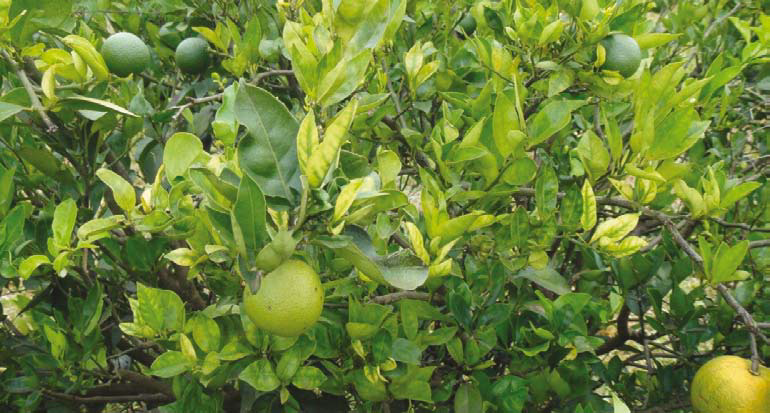In Argentina, 2,447 Citrus Plants Were Seized for Not Complying With Sanitary Regulations to Prevent Greening
Brazil
Ministry of Agriculture approved 328 pesticide registrations in 2024, of which 182 were chemical products (55%), 108 were technical products (33%) and 38 were biologicals (12%).“…many of the approved products are no longer in the same demand as when they were first applied for. This is due to the fact that the time it takes to approve a chemical pesticide registration is extremely long”, said Flavio Hirata, partner at AllierBrasil. (AllierBrasil)
Agrion Fertilizantes, Usina Enersugar and NovAmérica have established a partnership to built a special fertilizer factory in Ibirarema, State of São Paulo. The objective is to produce organomineral fertilizer from organic matter and filter cake from sugar and ethanol production residue. US$ 5.45 million will be invested and the plant will have an initial capacity of 45 thousand tonnes/year. (Enersugar; Agrion Fertilizantes)
Research has discovered a cheaper way to produce biopesticides based on the fungus Beauveria bassiana. The study replaced yeast extract with vegetable protein sources from industrial byproducts to multiply the fungus, which requires nitrogen. “The use of organic nitrogen from agroindustrial byproducts not only reduces the operational costs of producing fungi through liquid fermentation, since it reduces the dependence on expensive nitrogen substrates, but also contributes to the valorization of these compounds by converting them into sustainable biopesticides”, said Valesca Lima, researcher and author of the study. (Embrapa; UFG)
Ministry of Agriculture has published 102 pesticide registration approvals, including 74 formulated products and 28 technical products. (MAPA)
Petrobras and Embrapa have established a partnership to develop studies on renewable raw materials to obtain low-carbon products, such as biofuels and fertilizers. Petrobras will develop technological solutions and implement industrial units for the production of biofuels and bioproducts, and Embrapa will develop a protocol for low-carbon agricultural crops involving rational agricultural techniques. “In addition, the company is interested to offer fertilizers to increase availability in the domestic market, as well as to meet the goals of the National Fertilizer Plan”, said Magda Chambriard, president of Petrobras. (Petrobras)
With 118.96 million tonnes of cargo, port movement grew 1.38% in July of 2024, with 43.22 million tonnes in public ports. The main transported products were wheat (+59.75%), sugar (+22.18%) and fertilizers (+18.55%). (Antaq)
Mosaic expects a drop in the production of phosphorus and potassium fertilizers. In the 3Q, it is estimated a reduction of 200 to 300 thousand tonnes in potassium shipments, due to failures in electrical equipment in the company’s mines. In case of phosphorus, the estimated losses are 80 to 110 thousand tonnes in production volumes, due to adverse weather events. (Mosaic Fertilizantes)
Rain and high temperatures during the 2023/24 harvest season favored the occurrence of soybean Asian rust in the State of Rio Grande do Sul. The precipitation volumes, “resulting from the El Niño phenomenon, contributed to the emergence of the disease in all farming regions. The presence of spores of the pathogen in the collectors was observed… with the largest quantity being recorded in the months of February and March”, said Andréia Rotta de Oliveira, researcher at the Department of Diagnosis and Agricultural Research. For the next season, the La Niña phenomenon should reduce the incidences. (DDPA/Seapi)
With the end of the soybean fallow period in the State of Mato Grosso do Sul, begins the sowing for the 2024/25 harvest season, but the drought may affect this process. “Ideal soil moisture and temperature conditions are essential for grain germination. We are experiencing monthly temperatures above the state average, for example, June was 2ºC higher than average, and rainfall is 50% lower as well”, said André Nunes, coordinator of the Technical Department of Senar/MS. The expectation is that this scenario will improve in September, with increased rainfall, and that the situation will return to normal in the coming months. (Senar/MS; Inmet)
The Agricultural Defense Agency and Croplife signed a technical cooperation agreement and held a Workshop on illegal pesticides in the State of Tocantins. The objective of the partnership is to “outline actions to combat the illegal pesticide market, especially the inspection, in addition to improving good practices in the use of pesticides”, said Paulo Lima, president of Adapec. (Adapec; Government of Tocantins)
478 kg of pesticides were seized in Guaíra, western of the State of Paraná. The shipment is of Paraguayan origin and the amount is estimated at US$ 222.43 thousand. (BPFron)

Latin America
Argentina intends to reduce bureaucracy and deadlines for phytosanitary products registration. The General Directorate of Laboratories and Technical Control will now be responsible for the National Program for Monitoring Antimicrobial Resistance (RAM) in animals intended for human consumption and will be the regulatory authority for biological products and equipment for veterinary use. In addition, as of 9/17, all procedures for bioinputs, phytosanitary products and fertilizers will be carried out through “SIGTrámites”. The platform unifies all management of “requests, self-management, online payment, procedure traceability, time reduction, documentary support in a database and fluid communication”, reported Senasa. (Senasa)
Measures to prevent grasshoppers are being implemented in farms in the State of Chihuahua, Mexico. In addition to preventive measures, cypermethrin-based products were applied to approximately 15,000 ha of dryland beans, eradicating the pest in several municipalities in the state. (SDR; Government of Chihuahua)

READ MORE:

